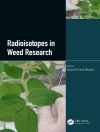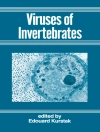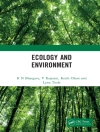O. L. LANGE, P. S. NOBEL, C. B. OSMOND, and H. ZIEGLER In the last volume of the series ‘Physiological Plant Ecology’ we have asked contributors to address the bases of ecosystem processes in terms of key plant physiological properties. It has often been suggested that it is not profitable to attempt analysis of complex living systems in terms of the properties of component individuals or populations, i. e. , the whole is more than the sum of its parts. Nevertheless, assessments of ecological research over the last century show that other approaches are seldom more helpful. Although it is possible to describe complex systems of living organisms in holistic terms, the most useful descriptions are found in terms of the birth, growth and death of individ- uals. This allows analysis of performance of the parts of the whole considering their synergistic and antagonistic interrelationships and is the basis for a synthe- sis which elucidates the specific properties of a system. Thus it seemsthat the description of ecosystem processes is inevitably anchored in physiological under- standing. If enquiry into complex living systems is to remain a scientific exercise, it must retain tangible links with physiology. Of course, as was emphasized in Vol. 12A, not all of our physiological understanding is required to explore ecosystem processes. For pragmatic purposes, the whole may be adequantely represented as a good deal less than the sum of its parts.
O. L. Lange & P. S. Nobel
Physiological Plant Ecology IV [PDF ebook]
Ecosystem Processes: Mineral Cycling, Productivity and Man’s Influence
Physiological Plant Ecology IV [PDF ebook]
Ecosystem Processes: Mineral Cycling, Productivity and Man’s Influence
购买此电子书可免费获赠一本!
语言 英语 ● 格式 PDF ● ISBN 9783642681561 ● 出版者 Springer Berlin Heidelberg ● 发布时间 2012 ● 下载 3 时 ● 货币 EUR ● ID 6380932 ● 复制保护 Adobe DRM
需要具备DRM功能的电子书阅读器












